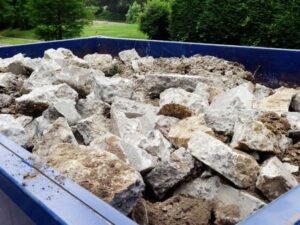We live in a time when things are changing faster than ever. New technology, shifting politics, and social movements make it hard to keep up. That’s why more and more experts are turning to the past for answers. They’re not doing it just out of curiosity—they’re doing it to understand how we got here and where we might be headed.
Studying the past helps us learn from mistakes, recognize patterns, and see the bigger picture. Whether it’s looking at revolutions, cultural shifts, or everyday life from centuries ago, experts are digging deeper into these stories to better understand the present.
Here are 10 reasons why this work matters now more than ever.
1. Historical Patterns Help Decode Modern Crises
Today’s events don’t happen in a vacuum. Experts study past events—like wars, pandemics, and economic collapses—to understand how people reacted and what changes followed. These patterns help leaders and communities prepare for similar situations in the future. History often repeats itself in surprising ways.
2. Specialized Programs Open New Pathways for Inquiry
More people are finding new ways to study the past through accessible learning options. These programs give students tools to look at how major changes happened and what led to them. They also teach how to analyze events, movements, and decisions over time. One such option is the Master’s in Art History online program which helps students explore cultural history from multiple angles, combining visual analysis with research and writing. The program is designed for people who want to study deeply while keeping up with work and life.
3. Marginalized Voices Are Finally Being Heard
Experts are now focusing on stories that were once ignored. This includes the experiences of women, Indigenous communities, and people from different backgrounds. By studying these groups, researchers uncover parts of history that were often left out. This creates a more complete view of the past.
4. Technological Tools Are Revolutionizing Research
Technology has transformed how experts study and share the past. Digital archives, virtual museum tours, and 3D modeling allow researchers to access rare materials anywhere. These tools make it easier to analyze historical evidence, uncover new insights, and present findings in engaging ways. As a result, studying has changed over time and has become more interactive, accessible, and connected to today’s digital world.
5. Teaching the Past Is Key to Empowering the Future
Understanding change over time helps students think critically. Experts who become educators pass this knowledge on. They show how past decisions affect the present and guide others to ask thoughtful questions. Teaching history helps shape more informed and aware citizens.
6. Interdisciplinary Study Sparks Innovation
Experts today no longer limit their focus to just one subject. They combine ideas from different fields like politics, economics, and social studies to better understand historical events. This approach creates a richer understanding of how change happens. It also connects history to modern challenges in new ways.
7. The Global Landscape Demands Contextual Understanding
Today’s world is deeply connected. To understand what’s happening now, we need to know the background of different countries and cultures. Experts look at past global events like colonization, migration, and trade to understand present-day conflicts and cooperation. Context from the past helps explain what’s happening today.
8. Visual Narratives Provide Clues to the Unwritten Past
Not all history is found in books. Experts study paintings, buildings, and artifacts to learn about people who left no written records. These visuals give clues about beliefs, daily life, and social change. This helps build a fuller picture of human development across time and cultures.
9. Public Engagement Is Reshaping the Role of Historians
Historians are now reaching beyond academic circles to connect with the public. Through podcasts, museum exhibits, documentaries, and accessible writing, they bring history to life for wider audiences. This shift helps people see the relevance of past events in today’s world. By making historical knowledge more engaging and inclusive, experts are changing how society understands and values the lessons of the past.
10. The Past Is Never Really Past
Old events still shape the present. Ideas, systems, and cultures today often come from choices made long ago. That’s why experts keep going back to study those moments of change. When we understand how past decisions were made, we can better guide future ones.
The study of the past isn’t just about memorizing dates or facts. It’s about asking why things happened and what they mean today. Experts are digging deeper not just to know more—but to make sense of the world around us. They connect past stories to current events, helping people understand change with clarity and confidence. Whether through new technology, deeper research, or better teaching, the work of these experts is more important than ever. And for anyone wanting to join them, there are now more ways to get started.










